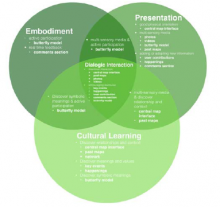|
Digital meets Culture https://www.digitalmeetsculture.net/article/digital-historic-urban-landscape-methodology-for-heritage-impact-assessment-of-singapore/ Export date: Fri Apr 4 3:35:55 2025 / +0000 GMT |
Digital Historic Urban Landscape Methodology for Heritage Impact Assessment of Singapore This research aims to show and explain the evolution of the architectural heritage of Singapore through the use of digital technologies that favour a participatory, dynamic and sharing approach. This research aims to show and explain the evolution of the architectural heritage of Singapore through the use of digital technologies that favour a participatory, dynamic and sharing approach.The research carries out an inventory of the information technology currently used to represent the evolution of the architectural heritage highlighting its strengths and weaknesses in order to define a model of digital participatory platform able to improve and deepen the public knowledge of the landscape and cultural heritage of the historical urban centers. According to the researchers, the use of intercultural and intergenerational dialogue is essential for ensuring and improving urban heritage conservation and planning. For this reason the digital platform representing the evolution and structure of the architectural heritage of Singapore has to use the key concept of Heritage Urban Landscape as defined by the recommendations of the United Nations Educational, Scientific and Cultural Organization: the HUL is a toll to support communities in the process of adaptation of new realities and evolution, preserving and transmitting in the same time their cultural and historical values. Furthermore, UNESCO recommends to encourage civic engagement to facilitate intercultural dialogue and preserve history, traditions,values, needs and aspirations of communities. From the comparative analysis of the current technology tools used to represent the structure of the architectural heritage, the researchers identify a new model of digital platform that aims to consolidate and summarize all previous results and outcomes. This new technology it is based on the use of the Heritage Urban Landscape to holistically evaluate the role of a site or building for the urban heritage of Singapore. The benefits of this new digital architectural heritage representation are several: recover and digitally recreate a lost architectural heritage; educate and instil to students the value of conservation and protection of the architectural and cultural heritage; support and improve tourism; create an archive for future generations interested in studying the urban and architectural landscape heritage. |